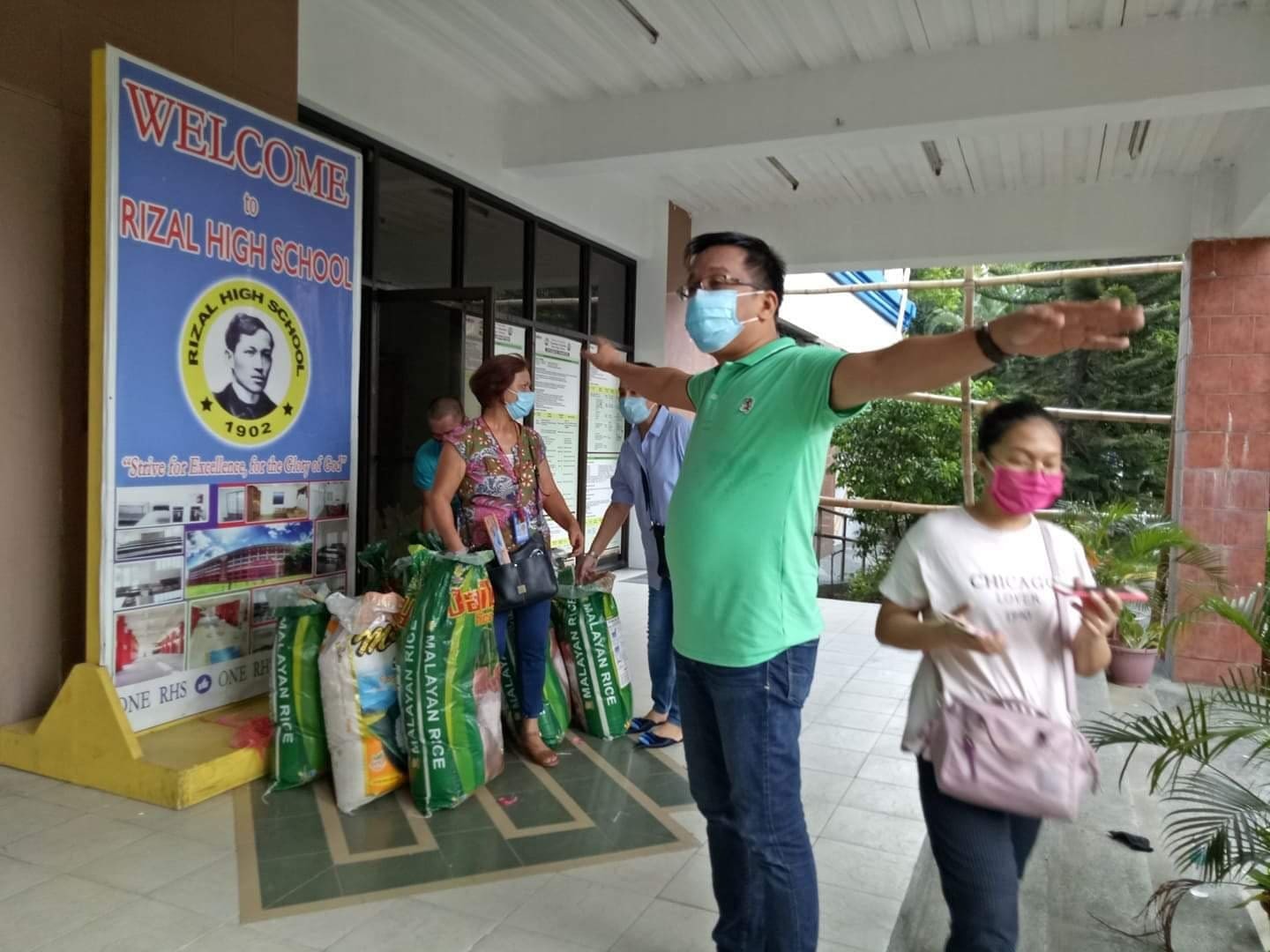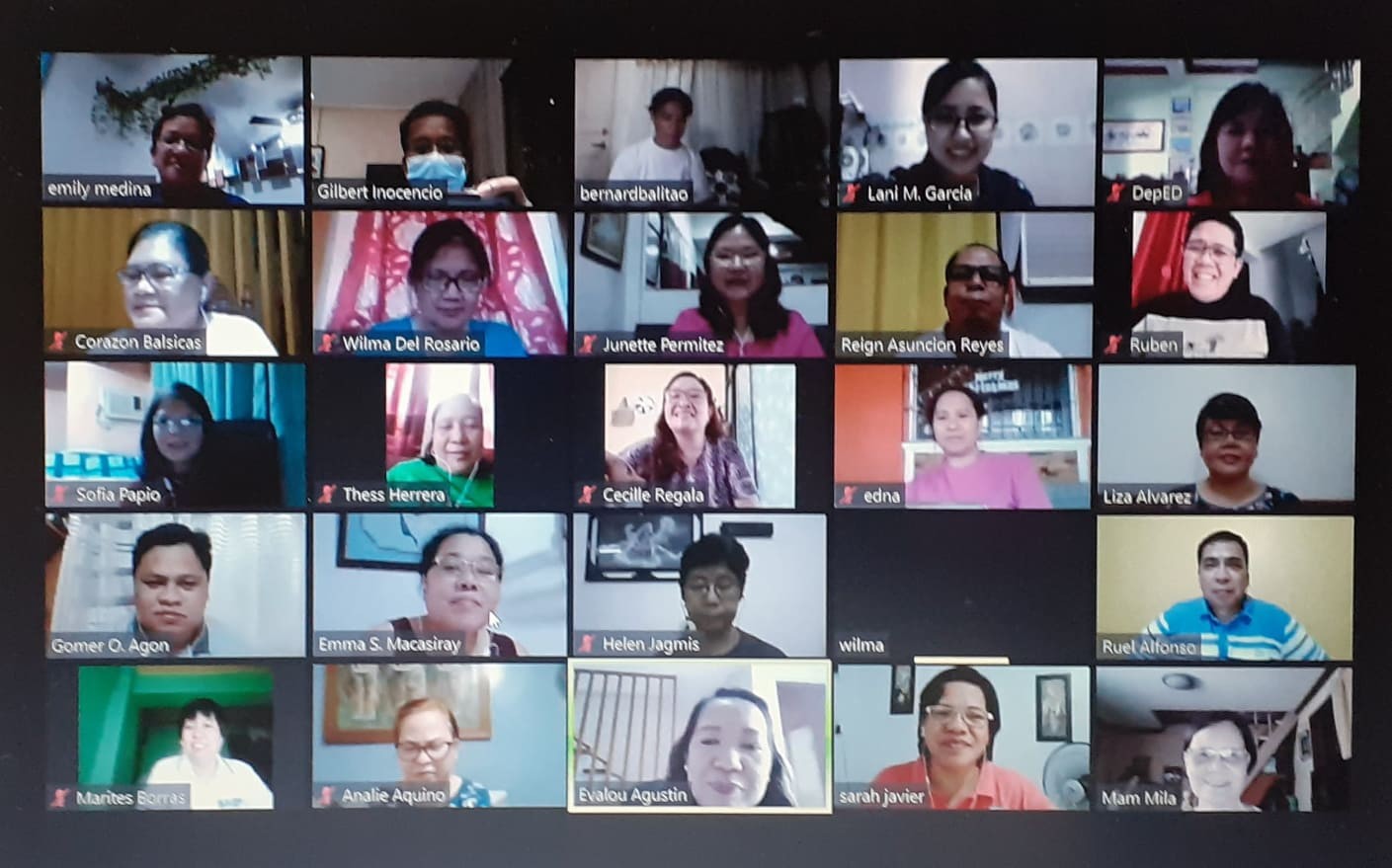It was mid-February of this year when news about the then-novel coronavirus (nCoV), now coronavirus disease 2019 (COVID-19) hit the Philippines; things are never the same after that. Everybody is shaken and fear-stricken especially during the months of March and April when the number of deaths is far more than the number of recoveries. It is especially depressing when the casualties are close to home or in a nearby street or when vulnerable sectors and people, the aged, young and ,with medical conditions are all under your roof.
The COVID-19 pandemic changed our lives altogether. Mobility has become severely restricted to walking around our homes and to our workplace a few kilometers away. The pandemic crisis definitely has also influenced our interactions. This situation has inspired us to be more innovative in handling our daily essentials. We are doing some reforms in our character, typically in a comparatively small but significant way like wearing of face masks, frequent washing of hands, observing physical distancing, and a lot more health protocols in school operations. In reality, “Corona time” consists of several different periods, such as “lockdown time,” “quarantine time” or “enhanced community quarantine (ECQ) time.” We've learned to live these new normal situations. Such lessons in each household and schools are deeply unique, and different. No one saw the pandemic coming in 2020. No one was prepared for it that even the richest countries in the world have knelt down. Life has truly changed due to this pandemic. However, life has to move on.
“ I am the curriculum leader of more than 10,000 students and the head honcho of parents, school community stakeholders and alumni. They all rely on me like an orchestra that is waiting for the conductor to make the move. This is both empowering and disheartening at the same time. ”
To say that “life is short” is an understatement. It was only during this time when I felt that I can go and cross the afterlife all too easily if I am not careful with my health and sanitary habits. A lot of things went through my mind, imagining scenarios that might happen, uncertainties that are insurmountable. I have not even found a suitable partner in life. I said, “Lord, if you get me now, I would roam around as a ghost because that is an unfinished business for me.”

But more than my personal conflicts and inner turmoil, there are things bigger than me and my imagined, overblown fears. I cannot escape the fact that I am the principal of more than 600 people, teaching, non-teaching and teaching-related staff and personnel. I am the curriculum leader of more than 10,000 students and the head honcho of parents, school community stakeholders and alumni. They all rely on me like an orchestra that is waiting for the conductor to make the move. This is both empowering and disheartening at the same time. It is only now that I realized that to be a good leader, one must be put to a test and must overcome this crisis. How?
Addressing the backlogs
Since the school year hasn’t really ended on the day classes were called off, teachers had to reach out to students for the completion of requirements. The Department of Education (DepEd) has cancelled the fourth-quarter examinations, which students have missed due to the outbreak. Both teachers and students have to communicate with each other through social media and text messaging. The problem of internet connection and weak signal has already surfaced.
Submission of reports, grades and other requirements were all done online, too. Reading of grades, which were also done online, took time. In addition, summer class or Sagip Mag-aaral and enrollment for the coming school year were also done online. The parents and the students who enrolled in summer class attended an orientation for proper information dissemination. However, not everyone was able to join the Zoom meeting because of weak internet connection. Another unfinished business is the end of the school year rites. The plan for the moving up and graduation is scheduled on Aug. 3, 2020. Because face-to-face is not yet allowed, the school will conduct virtual graduation where technicalities and other requirements will be another challenging task for the committee.
Welcoming the new system of enrollment
Enrollment procedures and services are also a challenge to the new normal. June 1 marked the start of enrollment for learners who are planning to enroll online. Just like the rest of the public schools, the first two weeks focused on remote registration, where there was absolutely no face-to-face registration. Rizal High School (RHS) exhausted all practicable means for remote registration. In the third week of the registration period, kiosk enrollment was employed where parents can simply drop the learner’s enrollment and survey form in dropboxes, which are strategically situated in selected barangays and in front of the RHS campus. So far, RHS already surpassed its target of 11,000 enrollees but still, more and more students from the private schools are transferring to public schools for some valid reasons.
Putting people’s safety first
Nothing is more important than my people; they take precedence over my own life. To safeguard their health and safety is my primary goal. I immediately gathered all my head teachers and administration staff in a virtual meeting we have not done before to map out plans and activities, and how to go about finishing tasks even in a work-at-home scheme. Time is of the essence and every minute counts. Soon, I already have matrices and point persons to work on specific tasks; I have delegated and monitored all the year-end reports, including tasks pertaining to student promotion, and teacher responsibilities. With the help of my able and competent staff, we were able to accomplish a lot. The health and safety protocols mandated by the government are being followed to the letter to protect our skeleton force.

Meeting the day-to-day challenge
School administrators and teachers communicate with one another through group chats, Google Meet and Zoom. Communication was challenging, too, because not everyone has an internet connection and a strong and stable signal. It was also hard to reach some teachers who went home to the province before ECQ was imposed. Since RHS was chosen as a quarantine facility for asymptomatic patients, less movement of school personnel and skeleton workforce were observed. Teachers are not allowed to go to school for safety reasons.
Preparing the LCP for SY 2020-2021
Given the difficulties in the face-to-face holding of classes and the need for social distancing, distance learning for the school year (SY) 2020-2021 will be a major component of learning delivery as we implement the School’s Learning Continuity Plan (anchored in the DepEd strategies of continuing the basic education for our learners) this school year. We acknowledge our learners, parents and teachers' fears and apprehensions that we might not be ready for distance learning, with issues about access to online platforms, gadget availability, and the readiness of the learners and teachers.
Here in RHS, we work hard to plan our programs that provide open and high-quality distance learning. I seek the cooperation of all the internal and external stakeholders of the school through convergence meetings. We strongly encouraged our parents to allow their children to enroll because “education must continue” for them. Education Secretary Leonor Briones said that online and blended learning are choices for this school year.
Our teachers are doing their best to provide modules and educational videos for our students. Teachers are also being asked to participate in “webinars” to educate them in integrating the use of different online platforms in teaching. In addition, the city government is seeking to collect funds to provide the learners and teachers with tablets and laptops. The local government, in partnership with the Schools Division Office (SDO) Pasig City, will see to it that tablets to be issued to the learners can be used offline so that the lack of internet connectivity among households will not be a hindrance in studying the lessons. The school will also provide printed modules for free to the learners who will opt to study using printed modules. This is to enable the city’s public school students, many of whom are poor, to continue their education as the country shifts to distance learning.
The pandemic has challenged the DepEd to find ways on how to resume classes in August amid the crisis. Education need not stop because there are other ways to deliver education to students. The desire of the DepED to continue education amid the pandemic sends a good signal to everyone that education is important without compromising the health of teachers and students. Moving forward may not be an easy path because this is the first time schools will experience remote teaching. However, with a clear vision and love for the education of the young, everything will fall into place with God’s grace.
Edited by Charmie Joy Pagulong


